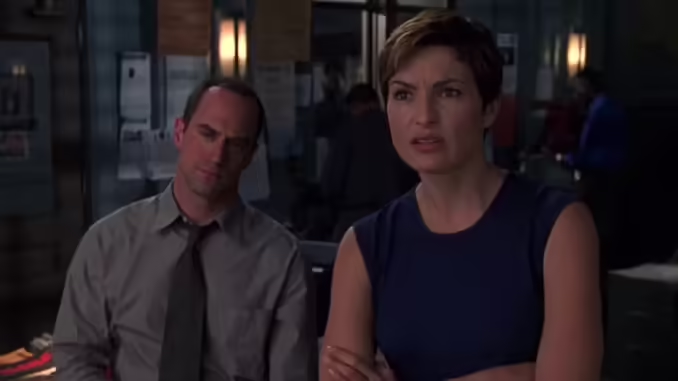
Law & Order: Season 25 expands its mission to support survivors through an emotional season-long storyline centered around Olivia Benson.
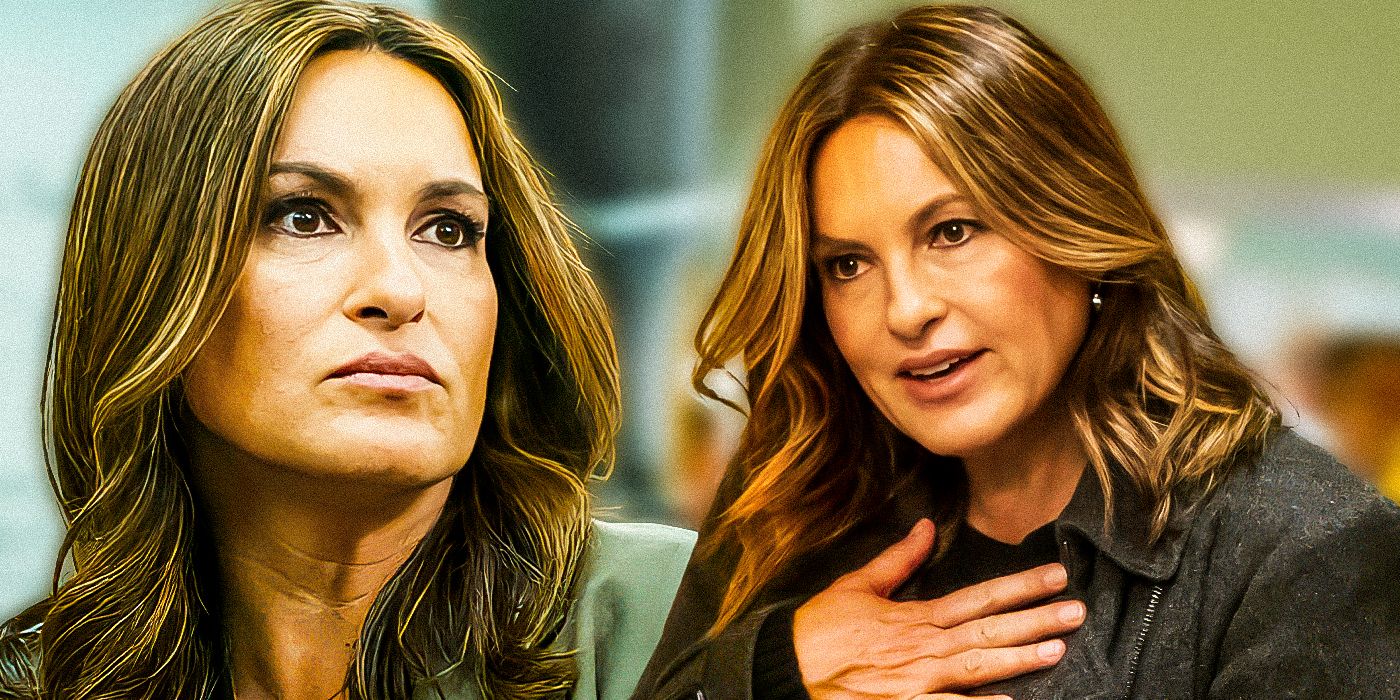
Two photos of Mariska Hargitay as Olivia Benson from Law & Order: SVU. In the central photo she is standing with her hand over her chest. To the left is a photo of her with a serious expression on her face.Custom image by Yeider Chacon
SUMMARY
Law & Order: SVU’s Olivia Benson has embodied the series’ commitment to supporting trauma survivors for 25 seasons, expanding on its central mission.
Benson’s current storyline in season 25 addresses vicarious trauma, shedding light on the challenges faced by those in helping professions like police officers.
As Benson’s mental health condition unfolds, the series hints at a potential retirement storyline, providing a realistic ending for both the character and the show.
This article contains discussion of sexual assault, PTSD, and other trauma-related mental health conditions.
Olivia Benson’s ongoing storyline in Law & Order: SVU season 25 expands upon the series’ biggest promise. The long-running police procedural has centered around Benson (Mariska Hargitay) for 25 years, often showing her working on Law & Order: SVU cases based on true events. She was initially a rookie detective who decided to join the SVU squad because of her history as a child conceived during rape. Over the years, she has risen to the rank of captain but has never lost her passion for helping survivors.
For the past 25 years, the series has supported survivors on-air and in real life, with Hargitay founding The Joyful Heart Foundation in 2004 for this purpose. Law & Order: SVU has been confirmed for season 26, allowing it to continue telling stories that help survivors feel seen and understood for at least another season. In most episodes, Benson acts as an advocate for the survivors she works with, encouraging them to pick up the pieces of their lives and keep moving forward. In season 25, Benson also has an ongoing storyline that supports the series’ central mission.
Law & Order SVU Header
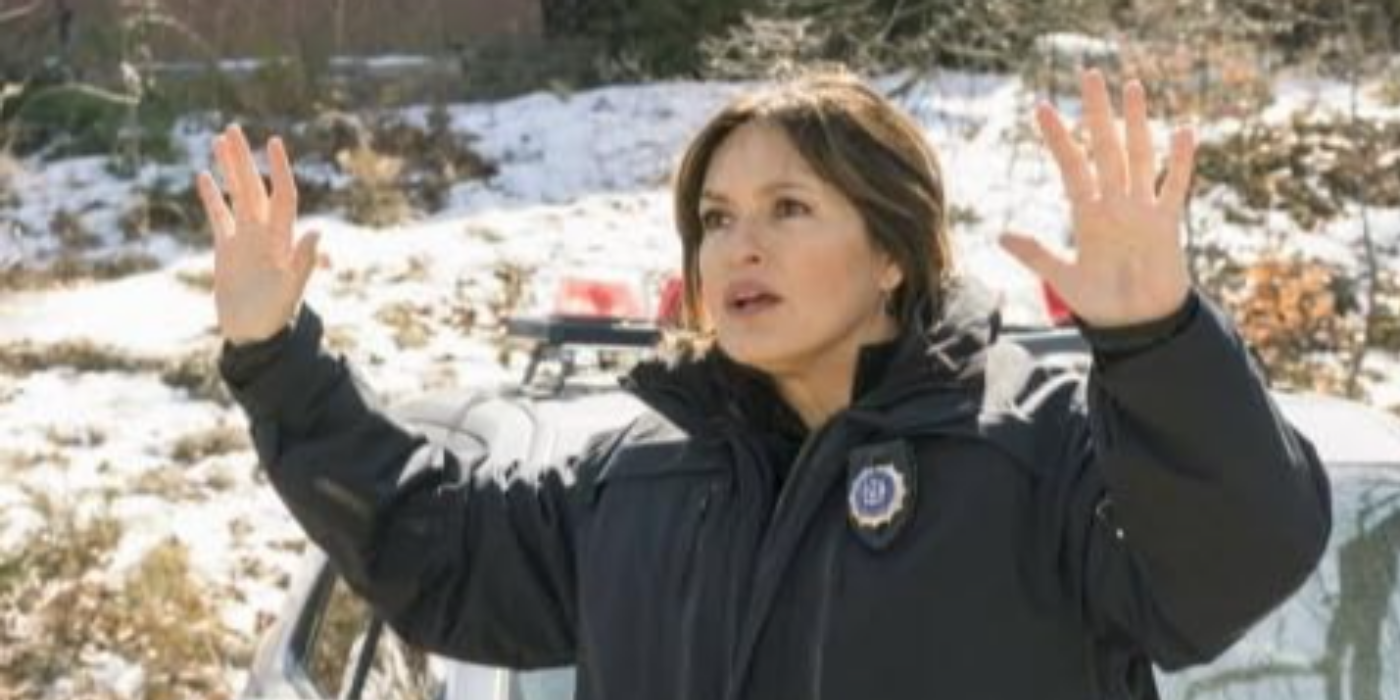
Law & Order: Special Victims Unit has been nominated for (and won) many awards, and its best episodes are a big reason why.
Law & Order: SVU Season 25’s Benson Storyline Expands On Its Commitment To Supporting Trauma Survivors
Benson’s Storyline Addresses a Different Type of Trauma
During Law & Order: SVU season 25, Benson has had a hard time dealing with the trauma of having seen a kidnapping victim with her abductor and not realizing until it was too late that anything was wrong. She has fueled these feelings of guilt and anguish into her determination to find the victim, sometimes at the expense of other cases, and her hyperfocus on this case has triggered concern among her colleagues.
Benson’s insistence on finding this missing girl is a symptom of a mental health condition called vicarious trauma. This condition is caused by prolonged exposure to others’ trauma and is common among people in helping professions, including police officers. It results from interacting regularly with people who have experienced severe trauma, causing the helper to react as if they had experienced the trauma themselves. After 25 years of helping sexual assault survivors, it is unsurprising that Benson has developed this condition.
In real life, sometimes people in helping professions attend monthly support groups associated with their jobs to help them manage vicarious trauma.
Law & Order: SVU’s core mission is to help sexual assault survivors by representing them accurately and giving them a hero who is determined not only to seek justice for them but to help restore the sense of control they lost due to the attack. The series has given Benson traumas of her own before, most notably in season 15 when she was kidnapped and tortured by a psychopath she was investigating. Her SVU season 25 storyline expands on these previous stories and offers people who have vicarious trauma the same support as the other survivors depicted in the series.
Law & Order: SVU’s Olivia Benson Has Always Been There For Everyone Else
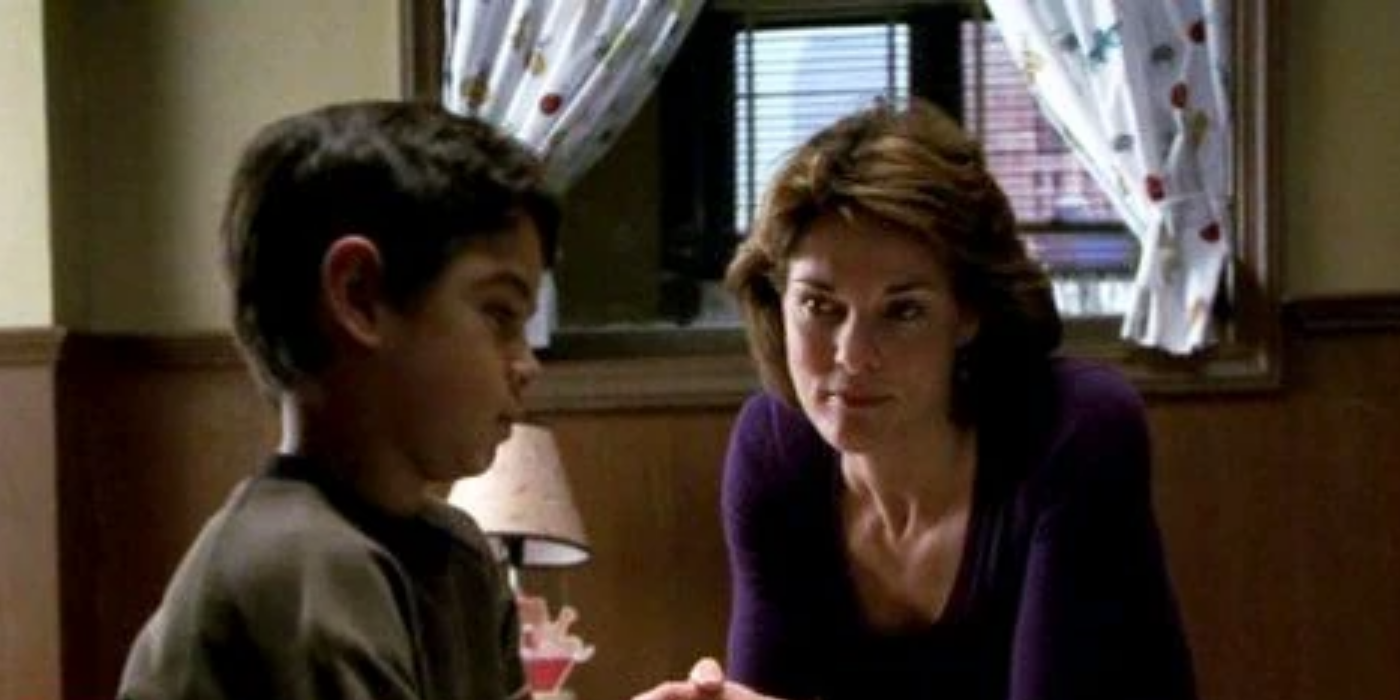
The Helper Needing Help Makes for a More Powerful Storyline
law and order svu baby killer
Benson has gone above and beyond the call of duty, often acting more like a social worker than a cop. She often gives survivors her cell phone number and drops everything when they call. She also spends long hours on each case and tolerates interruptions to her personal life if it means catching a perp that has gotten away with sexual assault in the past.
Benson once arrived at a crime scene in a fancy dress, as she had been on a date when the call came in about the crime.
Having someone like Benson, who is always there for everyone else, develop vicarious trauma is more powerful than introducing a guest star who has the condition, even if the guest character is also a cop. Benson is a well-known and beloved character, so seeing her be so different from her usual confident and supportive self is a stronger, more compelling storyline than if she were to interact for one or two episodes with a cop who had the condition. Law & Order: SVU can follow her journey rather than merely depicting the effects of vicarious trauma during one case.
This season-long arc also demonstrates the risks inherent in overextending yourself to take care of others. Benson has found self-care challenging throughout the 25 years that Law & Order: SVU has been on the air. During an early season, a family hit her with a restraining order when she refused to stay away from their daughter, and she has often put her own physical and mental health last on her agenda. These behaviors contributed to her developing vicarious trauma, so the current storyline can also make a powerful point about the need for helpers to find balance in their lives.
Olivia Benson’s Vicarious Trauma In Law & Order: SVU Season 25 Calls Back To Previous Storylines
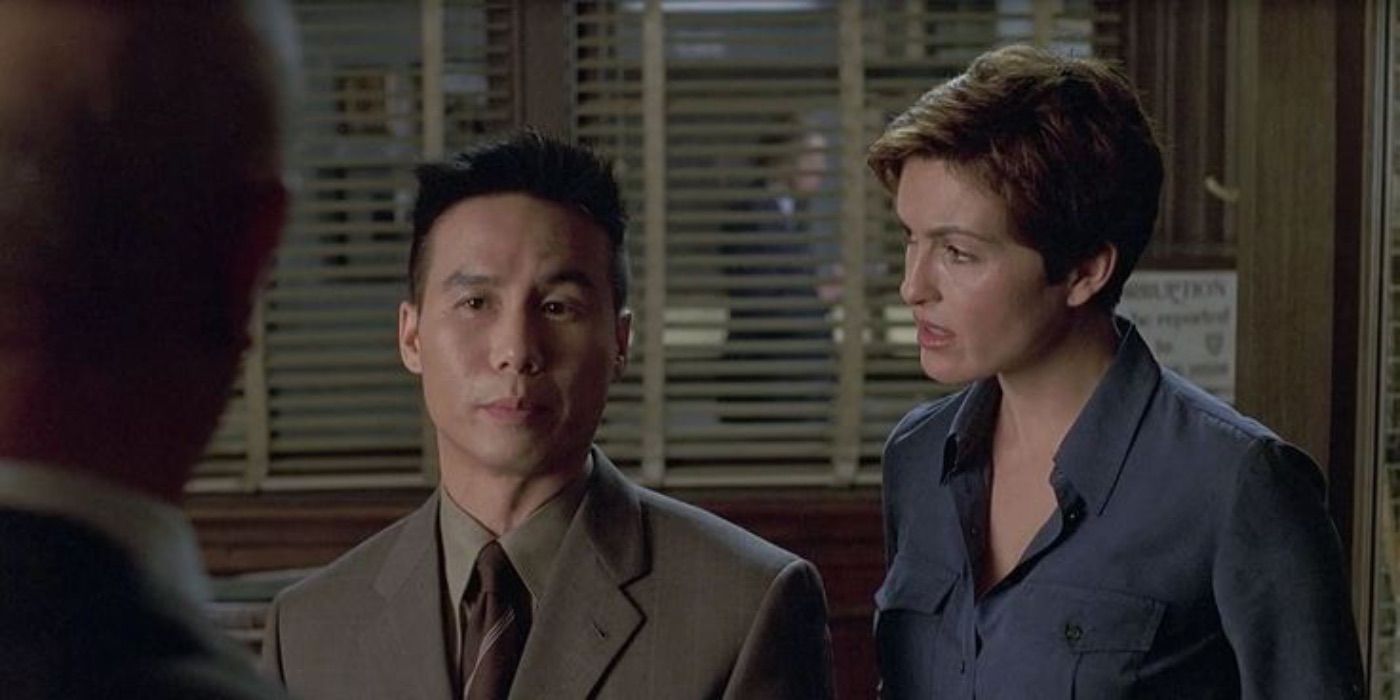
Benson Has Had Mental Health Treatment for PTSD Since Season 15B. D. Wong as Dr. George Huang and Mariska Hargitay as Olivia Benson in Law and Order: SVU.
Benson developed PTSD after being kidnapped by William Lewis, who broke into her home at the end of season 14 and held a gun to her head, a cliffhanger that led to one of Law & Order: SVU’s most graphic episodes. Lewis tormented Benson, who ultimately escaped her bonds and beat him severely shortly before the police arrived. After the incident, Benson began treatment for PTSD and has participated in therapy during many episodes.
These experiencesset the stage for Olivia Benson’s current storyline. Benson’s experience as a victim helped her empathize even more closely with the survivors she worked with, which probably contributed to her guilt over not stopping Maddie Flynn’s kidnapper before he disappeared with the teenager. However, Benson’s vicarious trauma is a separate mental health condition from her PTSD, and Law & Order: SVU has been careful not to mix the two up despite her history continuing to contribute to her current mental health condition.
Benson’s past as a child conceived of rape has also been a core part of the series since the beginning and has been her primary motivation for getting into this line of work. At this point, she has experienced a lot of trauma on top of her understanding of the circumstances of her birth and how the rape affected her mother. She also is worried about how learning his own history will affect her adopted son, Noah. All of these traumatic issues continue to weigh on her along with vicarious trauma, and Benson’s journey will likely involve facing these problems.
Olivia Benson’s Latest Storyline Sets Up A Huge Twist After Law & Order: SVU Season 26
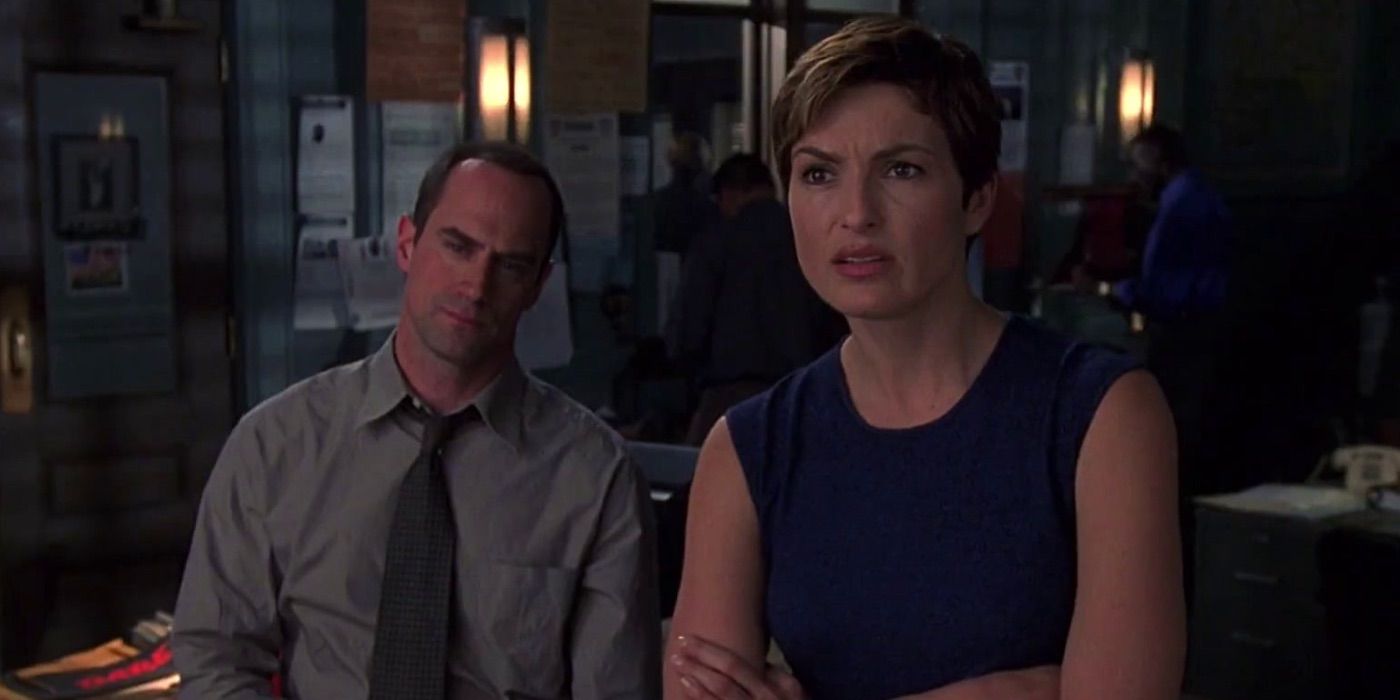
Could Benson’s Mental Health Condition Interfere With Her Career?
Benson and Stabler in the squad room in Law and Order: SVU
Benson’s difficulty letting go of her guilt in the Maddie Flynn case caused widespread speculation that season 25 would end with Benson retiring because of burnout from the job. Since Law & Order: SVU has been renewed for season 26, this isn’t likely. Instead, Benson and Rollins’ Law & Order: SVU reunion might be what Benson needs to help her move forward on her healing journey. Benson has always had a close friendship with Rollins, and Rollins has had her own mental health issues over the years, so Rollins is in the best position to help Benson now.
It’s possible that Benson’s storyline will continue throughout season 26. If so, Benson could still decide to retire at the end of that season. This would provide a realistic ending to both the story and the series should Law & Order: SVU not continue for a 27th season. Since Benson has been the protagonist since the first episode, it’s unlikely the series would continue if she chose to retire. Thus, Law & Order: SVU could take its time with this story, allowing Benson to move toward retirement over several years before wrapping the series up.
Law & Order: SVU has made supporting survivors its central mission for over 25 years. Benson’s vicarious trauma expands that support, giving cops and others who are in high-stress jobs the type of representation they may need to realize they need help. This storyline has the potential to go on for several seasons and could feature heavily in the eventual wrap-up of the long-running series.
